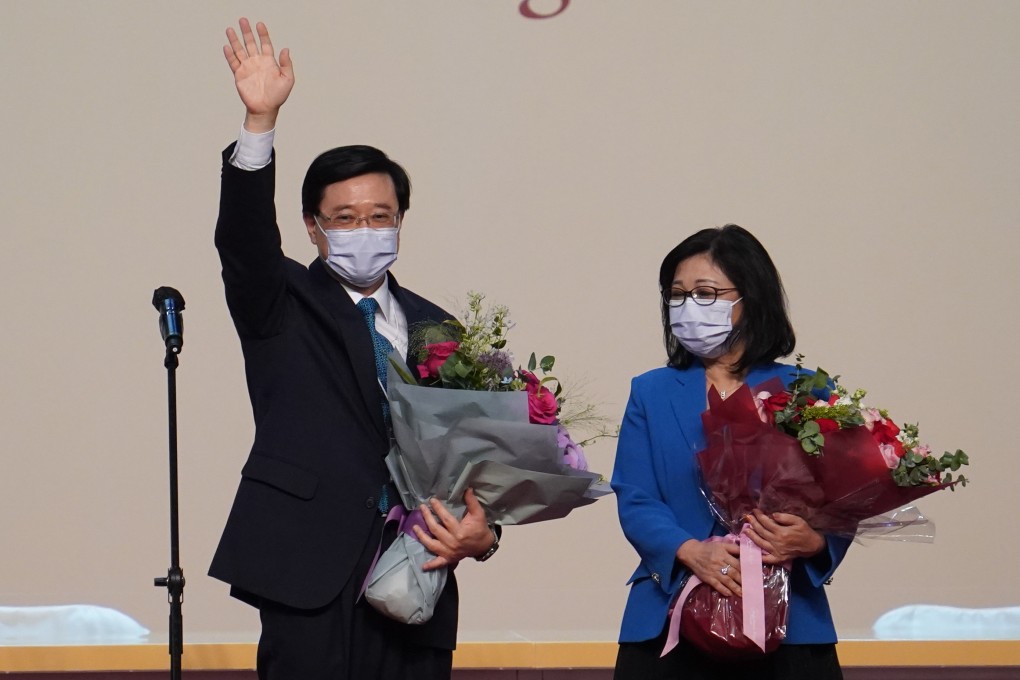With the voting over, John Lee now has to live up to his promise and deliver results
- Hong Kong’s chief executive-elect has to find talented people from various sectors to carry out his vision

John Lee Ka-chiu’s victory in the chief executive race was never in doubt. As the only contestant in Sunday’s ballot, he received more than 99 per cent of the votes. But now is when the hard work begins for Hong Kong’s new leader – from winning broader public support to resolving a wide range of pressing issues and deep-seated problems amid an increasingly testing environment.
Lee set the right tone by pledging to unite and lead the 7.4 million people of this city to start a new chapter together. His victory speech, covering issues such as economic competitiveness, the housing shortage, governance inadequacies, national security threats, youth mobility and the city’s appeal as a diversified and inclusive world city, has struck a chord with many who are eager to see improvements in these areas. He also vowed to narrow differences and build trust. “I will try my best to further convince whoever disagrees with me because it is my duty to let people understand what I can do for them … I can do that by actions so when they see results, they somehow know he’s trying his best,” he said.
The almost unanimous support Lee received from the pro-establishment camp will give the former government No 2 a strong footing to lead. He secured 1,416 of the 1,428 votes cast, compared with Carrie Lam Cheng Yuet-ngor’s 777 votes and Leung Chun-ying’s 689 votes in ballots confined to a smaller Election Committee and that included competitors. However, eight voters said “no”, while there were also four blank votes.
Public deserves a greater say
The vote, therefore, does not mean Lee will enjoy a strong public mandate. The contest, after all, was confined to just the 1,461-member Election Committee. The recent reforms that effectively shut out political opposition in all tiers of office prompted critics to dismiss the election as grandstanding. In any case, a single-candidate election is not the most ideal. It was the first leadership change following the electoral overhaul to ensure public offices will only be filled by those who meet Beijing’s patriotism criteria. There are concerns whether a such a contest with just one candidate will become the model for future polls. With universal suffrage unlikely to be achieved any time soon, it is important that the public plays a bigger role in elections to come.
Unlike previous polls where rivals sought to impress with their platforms and reached out to the community during campaigns, the atmosphere this time was noticeably different. The lack of competition was certainly a factor, as were the coronavirus-related social-distancing measures and the limited time for Lee to map out a more comprehensive manifesto and campaign to win wider public support. He task now is to engage more with the public and continue to tap views from different sectors in the run up to assuming office on July 1.